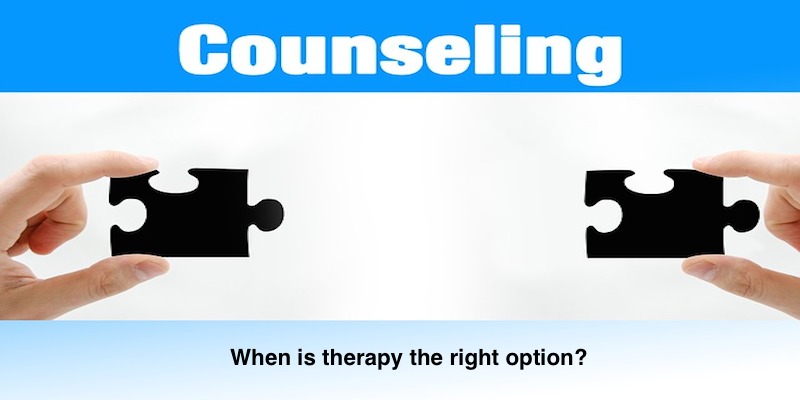Can We Really Trust Therapists To Help Us?
Tanya is laughing, halfheartedly, with her hands on her cheeks, looking puzzled, while the bearded therapist asks questions.
She has just described how her husband’s abrupt request for a divorce was like a tornado striking without warning, causing extensive damage, leaving behind a trail of destruction.
She was studying at the kitchen table, memorizing a list of bones in an anatomy chart, completely focused, intent on acing tomorrow’s big quiz when he interrupted her pleasant abstractions.
The therapist repeats the question. “Do you think he felt neglected all these years?”
The question makes Tanya suddenly aware of her own role in the looming divorce. She now sees how she made her husband feel inadequate, inferior, and inconsequential as she pursued her quest to complete her Master’s degree in Nursing.
“Do you think it’s too late,“ she asks, tentatively.
“No,” asserts the therapist, “it’s never too late to become the partner that you always wanted to be. All you have to do is share more of the person he married to heal the rift in your communications.”
This is therapy. It’s a skillful dialogue between a therapist and a client.
A good therapist, the right one for you, shows gentle, insightful caring and has the experience to help you become more self-aware. Ultimately, it’s awareness that leads to reversing bad decisions and resolving overwhelming problems in your life.
You will begin to feel better almost immediately as you share your bottled-up thoughts and feelings. This alone is healing.
It’s refreshing to voice worries and concerns and unburden your mind from the weight you’ve been carrying because our brains are hardwired to feel good when someone listens to us, shows caring, and sincerely desires to help us.
Yet, of course, therapy does a lot more. The therapist’s gentle, probing questions will make you review your emotional pain, seek alternative interpretations, discover hidden causes, and come up with unexpected solutions for dealing with your life crisis. In fact, after a few sessions, you will develop a whole new understanding of your strengths and your ability to handle a problem that once appeared overwhelming.
Urban Myths about Therapy
If therapy can help relieve the burden of critical problems and guide people to finding a whole new way of life, why do so few people use it?
It’s mainly because of urban myths that have nothing to do with how therapy really works.
Here are three of the most common ones:
- “I’m smart enough to figure my problems out on my own.”
Whether you’re smart or not has nothing to do with it. Your problems exist because an emotional blind spot forced you to make errors in judgment. A therapist will not tell you what to do or how to do it; instead, he or she will help you discover your own answers. A therapist will guide you toward your own best counsel.
Other variations on this theme are “I’m tough enough to handle this on my own. I don’t need to whine and complain.” Again, it’s got nothing to do with your emotional resilience. Therapy is about helping you find the right answers for your personal problems. It’s not an evaluation of your strengths or weaknesses.
- Only neurotic or psychotic people need therapy.
This is an urban myth that probably arose through television dramatizations about crazy people who visit a therapist to help the plot move along. Therapy is also for normal people to help them restore their emotional balance and regain their self-confidence after an upsetting experience.
- Therapists only want to talk about my past and my childhood.
This is yet another over-generalization. Yes, therapists do talk about the past. They want to understand your family relationships, background, and life experiences to help you better. The purpose of therapy is not to examine your past, but to trace the source of your unhealthy behavior patterns so you can change them.
Finding the Right Therapist
When working with a therapist, it’s critically important that you find the right person for you. Unless you have rapport with a therapist, you will not be willing to talk about the difficult issues at the root of your emotional unrest and intellectual confusion. The right therapist is your friend on your road to recovery.
How do you find the right therapist? You can ask other people, use the telephone book, or research online using directories like TherapyTribe.com to read about the therapist’s backgrounds and therapeutic method. The most important thing is that you find a therapist whose personality and modality resonate with you. It may take time to find the right person, but it is time well spent. Occasionally, you might find the right person quickly.
What to Expect
Every form of therapy is different. There are numerous therapeutic approaches and you might work with a therapist individually, with your family, or in a support group. Generally speaking, however, your sessions will be in the therapist’s office for an hour, and you will probably arrange to meet once a week until the problem has been resolved.
Reader Question: Therapy can be taboo in some communities, but is often a great option for post people when they need to speak to someone confidentially to sort out different issues. Why do you think therapy is frowned upon in some circles?
*Images (Source)



